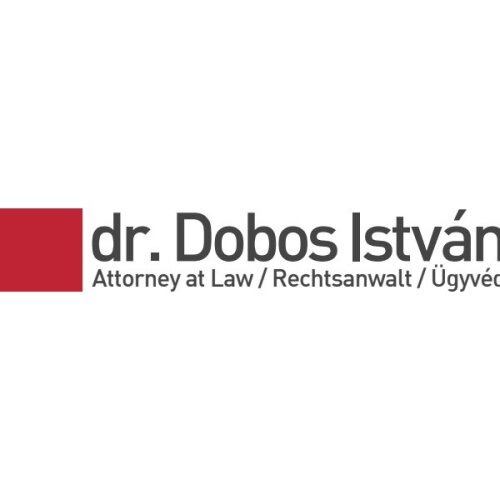Best Sustainable Finance Lawyers in Hungary
Share your needs with us, get contacted by law firms.
Free. Takes 2 min.
Or refine your search by selecting a city:
List of the best lawyers in Hungary
About Sustainable Finance Law in Hungary
Sustainable Finance in Hungary refers to financial activities and regulations that support environmental protection, social responsibility, and good corporate governance within the country. The focus is on integrating sustainability considerations into financial decision-making by businesses, investors, and public authorities. Hungary, as a member of the European Union, aligns its national laws with EU directives and regulations that encourage green investments, climate risk assessments, and non-financial reporting. The aim is to support the transition to a low-carbon, resource-efficient economy while promoting transparency and responsible investment in the financial sector.
Why You May Need a Lawyer
Navigating the legal intricacies of Sustainable Finance can be complex, particularly with evolving laws and rigorous requirements. You may need a lawyer if:
- You are launching a green bond or sustainable investment product and need legal compliance guidance.
- Your business is required to make sustainability-related disclosures under new regulations.
- You are an investor seeking to ensure your portfolio aligns with current sustainability criteria and avoids greenwashing risks.
- You are involved in a merger, acquisition, or partnership where environmental, social, and governance (ESG) factors must be evaluated.
- You face regulatory investigations or penalties related to sustainability claims or practices.
Legal experts can clarify the requirements, assess risks, draft compliant documents, and represent your interests before authorities or in disputes.
Local Laws Overview
Hungarian Sustainable Finance regulations are closely linked to broader European Union policies, especially the EU Green Deal and Sustainable Finance Action Plan. Key aspects include:
- The EU Taxonomy Regulation, which classifies sustainable economic activities, is directly applicable in Hungary and defines which investments can be labeled as environmentally sustainable.
- The Sustainable Finance Disclosure Regulation (SFDR) requires financial market participants and advisors to disclose how sustainability risks are integrated into their investment decisions and advice.
- Non-financial reporting requirements, based on the EU Non-Financial Reporting Directive (NFRD) and soon the Corporate Sustainability Reporting Directive (CSRD), obligate certain large companies in Hungary to report on their environmental and social impacts.
- Local enforcement is carried out by Hungarian authorities, such as the Central Bank of Hungary (Magyar Nemzeti Bank, MNB) and the Hungarian Financial Supervisory Authority.
- National initiatives also encourage green lending and responsible banking practicies.
These evolving frameworks aim to increase transparency, encourage responsible investments, and support Hungary's climate and sustainability commitments.
Frequently Asked Questions
What is Sustainable Finance?
Sustainable Finance refers to financial services that integrate environmental, social, and governance (ESG) criteria into investment and business decisions. It includes green bonds, ethical investments, and sustainability-linked loans.
Do Hungarian banks offer sustainable or green finance products?
Yes, many Hungarian banks now offer green loans, ESG-focused investment funds, and financing options for environmentally sustainable projects in line with EU and national standards.
Are there mandatory sustainability disclosures for companies in Hungary?
Large Hungarian companies, especially those listed on the stock exchange or employing over 500 people, must produce annual non-financial reports detailing their sustainability practices, risks, and impacts.
What penalties can arise from failing to comply with sustainability regulations?
Penalties can range from fines and reputational damage to restrictions on listing financial products or accessing subsidies. Regulatory investigations can also be triggered by inaccurate sustainability claims.
How does the EU Taxonomy Regulation affect businesses in Hungary?
The Taxonomy Regulation applies directly in Hungary, influencing which economic activities and investments can be classified as environmentally sustainable. This impacts eligibility for green finance and reporting obligations.
Can foreign investors participate in sustainable finance projects in Hungary?
Yes, foreign investors are encouraged to participate in sustainable finance projects, but must comply with both Hungarian and EU regulations concerning sustainability criteria and reporting.
Who supervises sustainable finance practices in Hungary?
The Central Bank of Hungary (MNB) supervises compliance with financial regulations, including those relating to sustainability disclosures and green finance.
What should a business include in a non-financial report?
A non-financial report typically covers environmental impact, social responsibility, governance standards, climate risk management, anti-corruption policies, and sustainability targets.
How can I identify greenwashing risks?
Look for clear, verifiable sustainability claims, evidence of compliance with EU Taxonomy and SFDR, and third-party certifications. A lawyer can help scrutinize disclosures and assess potential liabilities.
Where can I find official guidance or templates for sustainability reporting?
Hungarian authorities and the European Commission provide reporting templates and handbooks. Legal professionals often assist businesses in interpreting and using these tools correctly.
Additional Resources
Consider consulting the following Hungarian and EU organizations for reliable information and support:
- Central Bank of Hungary (Magyar Nemzeti Bank - MNB): Oversees financial and sustainability regulations.
- Hungarian Ministry of Finance: Issues policy updates and compliance guidance for sustainable finance.
- Hungarian Banking Association: Offers information on industry best practices regarding green finance.
- European Commission: Publishes EU-level regulations, directives, and sustainability taxonomy resources.
- Hungarian National Research, Development and Innovation Office: Promotes sustainable innovation projects.
Next Steps
If you require legal advice or assistance regarding Sustainable Finance in Hungary, consider the following steps:
- Gather all relevant documents, such as existing sustainability policies, financial reports, or investment plans.
- Identify the specific areas where you require guidance, such as compliance, reporting, regulatory challenges, or investment structuring.
- Contact a lawyer or law firm specializing in Sustainable Finance or financial services regulation in Hungary. Consider scheduling a consultation to discuss your case in detail.
- Prepare questions and concerns to ensure you address all aspects of your situation during the consultation.
- Stay updated with any changes in Hungarian or EU sustainable finance laws that may affect your obligations or opportunities.
A qualified legal expert can provide tailored advice, help you meet all regulatory requirements, and protect your interests as the field of Sustainable Finance continues to evolve in Hungary.
Lawzana helps you find the best lawyers and law firms in Hungary through a curated and pre-screened list of qualified legal professionals. Our platform offers rankings and detailed profiles of attorneys and law firms, allowing you to compare based on practice areas, including Sustainable Finance, experience, and client feedback.
Each profile includes a description of the firm's areas of practice, client reviews, team members and partners, year of establishment, spoken languages, office locations, contact information, social media presence, and any published articles or resources. Most firms on our platform speak English and are experienced in both local and international legal matters.
Get a quote from top-rated law firms in Hungary — quickly, securely, and without unnecessary hassle.
Disclaimer:
The information provided on this page is for general informational purposes only and does not constitute legal advice. While we strive to ensure the accuracy and relevance of the content, legal information may change over time, and interpretations of the law can vary. You should always consult with a qualified legal professional for advice specific to your situation.
We disclaim all liability for actions taken or not taken based on the content of this page. If you believe any information is incorrect or outdated, please contact us, and we will review and update it where appropriate.
Browse sustainable finance law firms by city in Hungary
Refine your search by selecting a city.

















